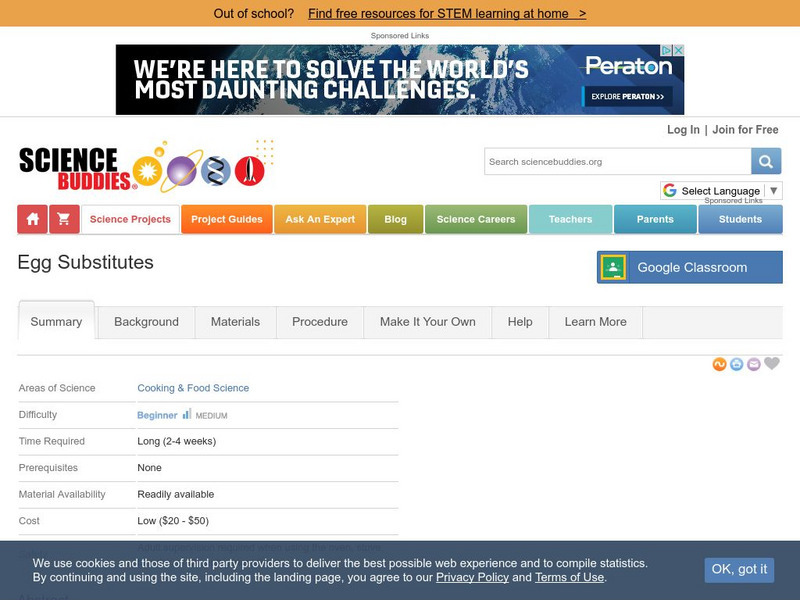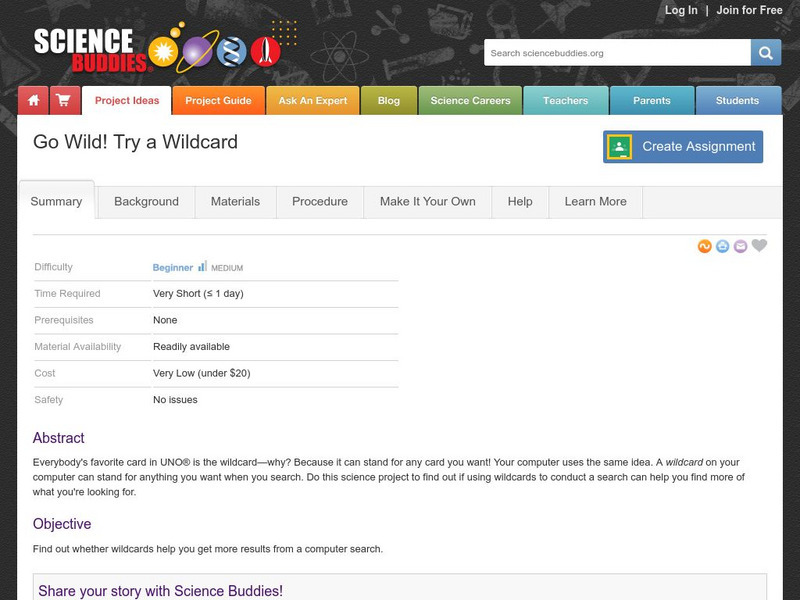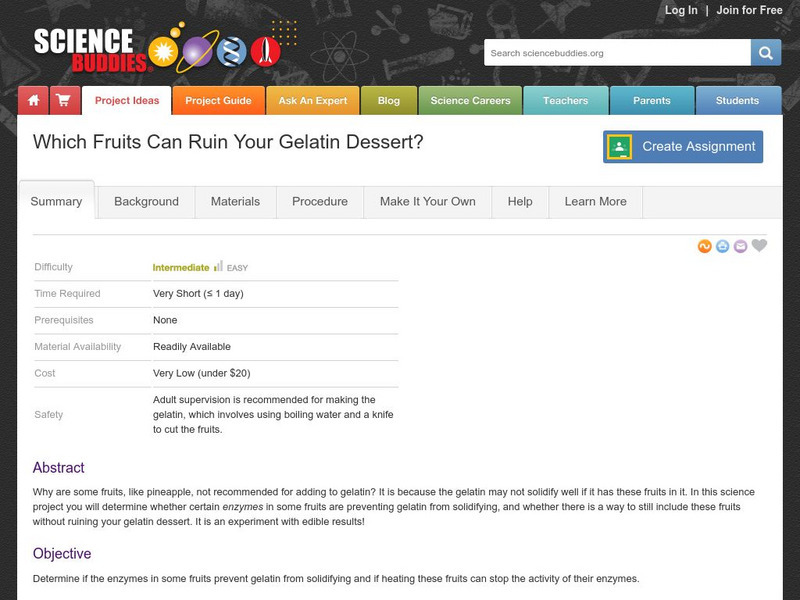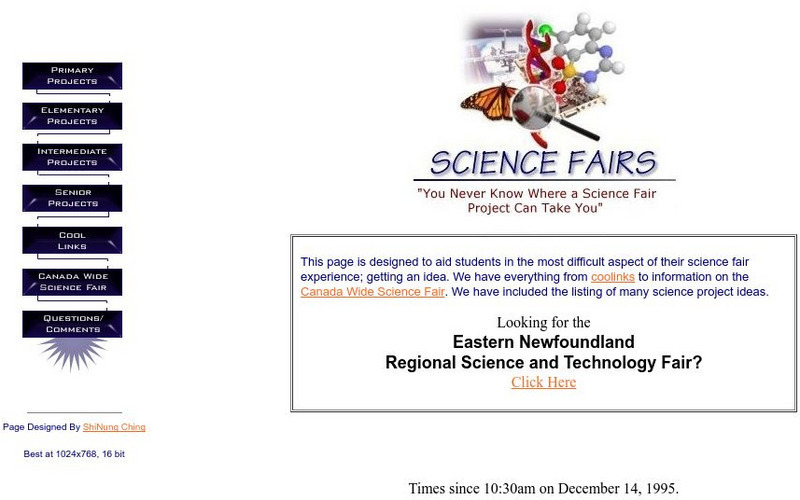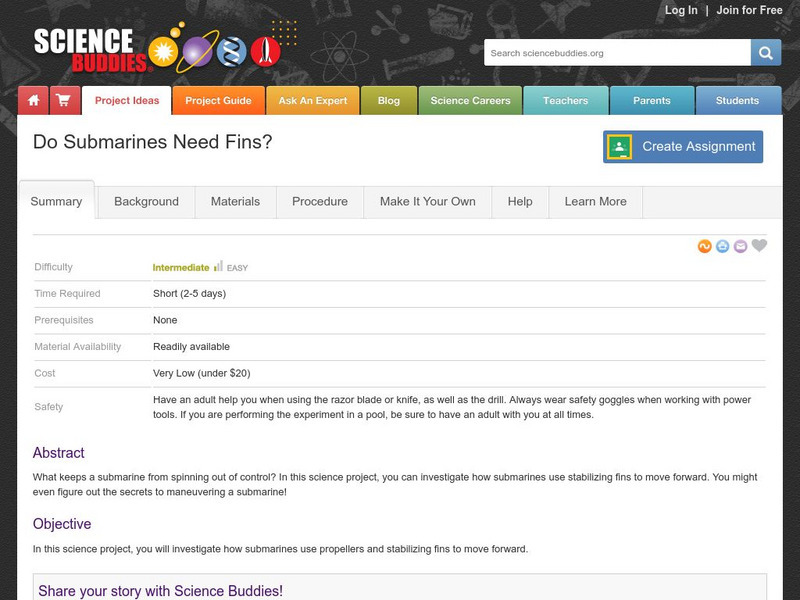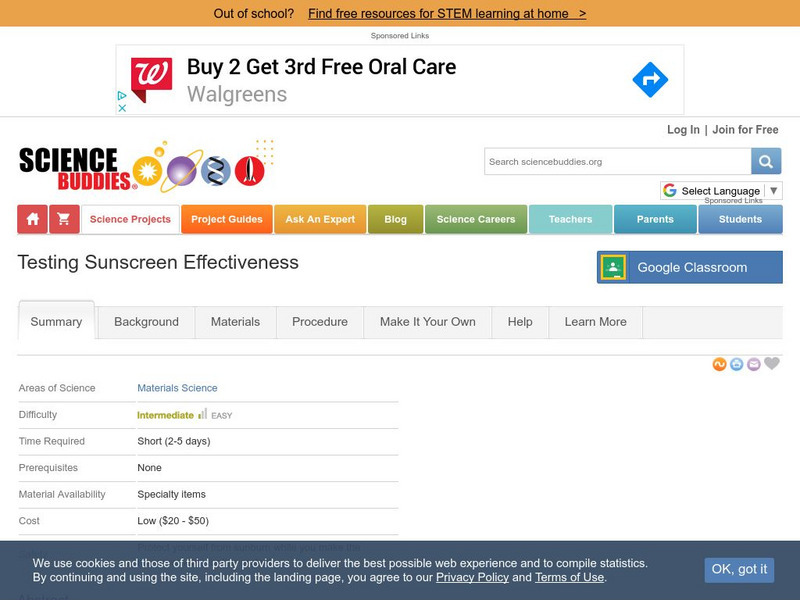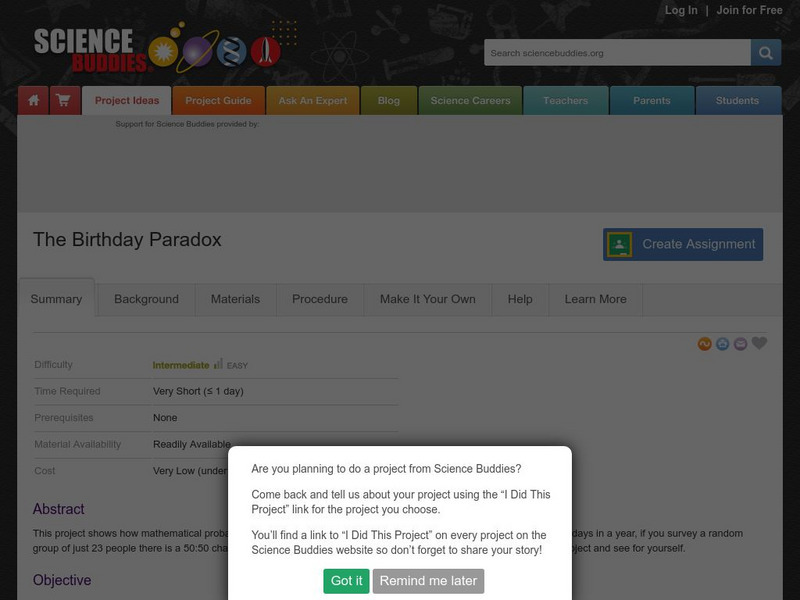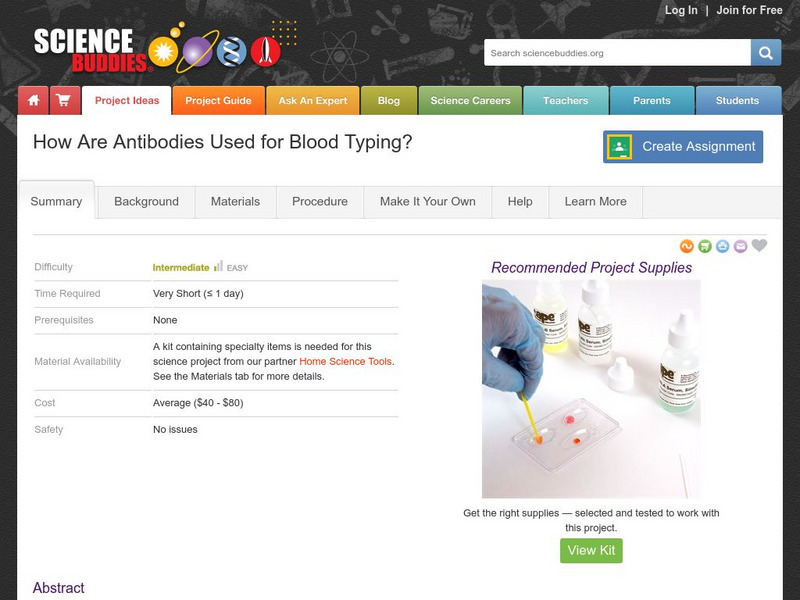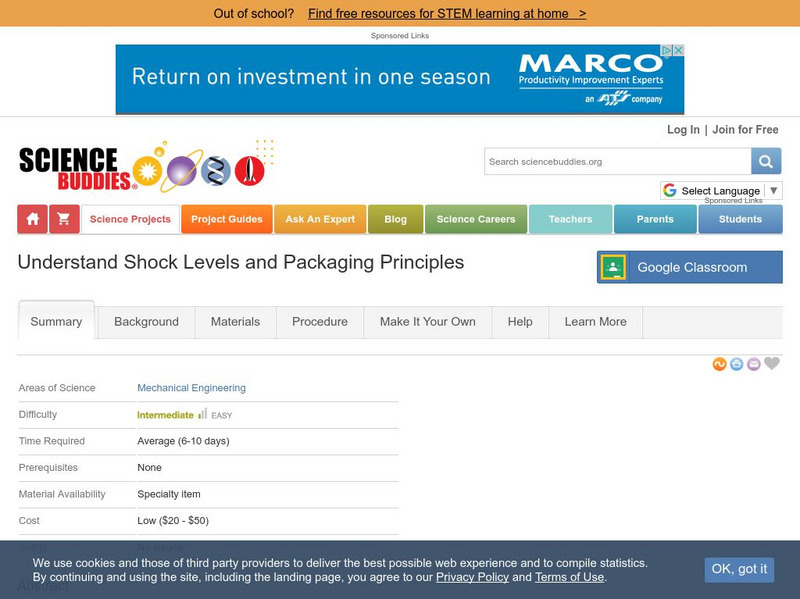Hi, what do you want to do?
Discovery Education
Discovery Education: Science Fair Central: Invention Project Samples
Discover how to present your findings after completing a science fair project. View sample science fair invention projects: junior light switcher, quiet down invention, and stale sandwiches.
Discovery Education
Discovery Education: Science Fair Central: Investigation Project Samples
Explore three science fair project samples about birds, stain removal, and keeping it cool. See how the report is written after the investigation is complete.
Science Struck
Science Struck: Water Cycle Project Ideas
A collection of ideas for creating a science fair project on the water cycle.
Ducksters
Ducksters: Kids Science: Projects and Experiments
Kids learn by experimenting with science. Ideas for scientific projects on weather, sound, electricity, ecology.
Science Buddies
Science Buddies: Slime Chemistry
Have you ever wondered how fun toys like Silly Putty, Gak, and Slime are made? These products are so much fun because of the properties of polymers, which make them delightfully bouncy, stretchy, sticky, moldable, breakable, hard, soft,...
Science Buddies
Science Buddies: Levitating Magnets: Floating Isn't Just for Magicians
If you ever seen a magician float an object in the air, you might think that levitation is just a magic trick, but the truth is you can use an invisible physical force to levitate a magnet. Try this simple, week-long science project to...
Science Buddies
Science Buddies: Are You Gellin'?
Chances are, you have several materials around your house made of gelatinized materials. Gels are used in all kinds of products and materials: pudding, diapers, insoles, packaging, ice cream, toothpaste, and much more. In this project,...
Science Buddies
Science Buddies: Egg Substitutes
Egg allergies are not uncommon, therefore many egg substitutes are sold in order to bake, and cook recipes that call for them. In this science project idea, you'll investigate how to modify recipes so that even egg-allergic friends and...
Science Buddies
Science Buddies: Wild About Wildcards
The idea of a wildcard allows you to satisfy any condition. The same concept is behind using a wildcard when searching for something with your computer. Do this experiment to find out if using wildcards to conduct a search can help you...
Science Buddies
Science Buddies: Point of a Parabola: Focusing Signals for a Better Wireless Net
Here's a project with practical applications for homes with a wireless network. This project shows you how to build and test parabolic reflectors for the transmitters on your network. You may be able to increase the range of your...
Science Buddies
Science Buddies: Are There Dangerous Levels of Lead in Local Soil?
The element lead is a neurotoxin that is particularly dangerous to young children. Among other uses, lead compounds were common paint additives until being phased out for safer titanium-based additives beginning in the 1960's. Lead...
Science Buddies
Science Buddies: Which Fruits Can Ruin Your Dessert?
Here is a basic project for investigating enzymes that prevent gelatin from solidifying. This way you can understand why it is some fruits are not recommended for inclusion when it comes to making gelatin.
Science Buddies
Science Buddies: How Many Letters?
Can you remember all of your ABC's? Computers need to "remember" letters too. Every time we use a computer to write a story, the computer needs to "remember" the letters in the story by saving them to the computer's memory as a file. In...
Science Buddies
Science Buddies: Getting More Out of Less : Google Hits and Search Terms
Google is the name of the most often used search engine on the Internet. "Googol" is the mathematical term for a 1 followed by 100 zeros. It's a very large number. This experiment will help you test different search terms and find out.
Science Bob Pflugfelder
Science Bob: Science Fair Ideas!
Pick your topic using these ideas to get you started. Even if you don't like any, they may inspire you to come up with one of your own. Remember, check all project ideas with your teacher and parents, and don't do any project that would...
Other
Cdli: Science Fairs Homepage
At this site from the Center for Distance Learning and Innovation there's a monstrous listing of possible science fair projects. You can choose from primary (grades 1-4), elementary (grades 4-6), intermediate (grades 7-9), or senior...
Science Buddies
Science Buddies: Do Submarines Need Fins?
In this science project, you can investigate how submarines use stabilizing fins to move forward. Exploring friction and buoyant force you will get closer to understanding how these large ships function. Research resources are included...
Science Buddies
Science Buddies: Strength in Numbers?
Ever try to tear a telephone book in half? Even though you can easily rip one or a few pages to shreds, the entire phone book has strength in numbers and holds together. This project is an introduction to measuring and comparing the...
Science Buddies
Science Buddies: Testing Sunscreen Effectiveness
The goal of this project is to measure the effectiveness of different sunscreen products for blocking ultraviolet-A (UVB) and ultraviolet-B (UVB) rays from sunlight. This project shows you how to use a UV detector to measure rays of light.
Science Buddies
Science Buddies: Which Metal Is the Most Resistant to Corrosion?
Here's a practical engineering challenge: you need to build an enclosure for your dogs, using material that they can't chew through. It's going to be a lot of work to build, so you want to do it right. What material should you choose for...
Science Buddies
Science Buddies: The Birthday Paradox
This project shows how mathematical probability sometimes contradicts our intuition. Despite the fact that there are 365 days in a year, if you survey a random group of just 23 people there is a 50:50 chance that two of them will have...
Science Buddies
Science Buddies: Divide and Conquer: Proving Pick's Theorem for Lattice Polygons
If you like to play Tetris then you might like this project. You'll learn something interesting about the mathematics of complex shapes.
Science Buddies
Science Buddies: How Are Antibodies Used for Blood Typing?
The human immune system has various ways of responding to an infection caused by bacteria or viruses. Our bodies produce proteins (antibodies) that are highly specific for the infectious agent as a part of our "humoral" immune response....
Science Buddies
Science Buddies: Understand Shock Levels and Packaging Principles
When you open up your presents on your birthday, you probably don't spend a lot of time admiring the wrapping-you'd much rather see what's inside. It can be the same way with the packaging that products come in, but packaging is...











